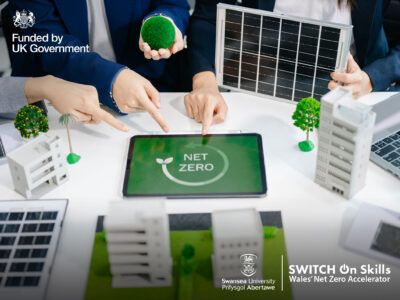Measures Taken by the Paris Olympics to Achieve Net Zero
The Paris 2024 Olympics are set to be a landmark event, not just for the athletic feats that will be showcased, but also for the groundbreaking steps being taken towards sustainability. With a bold ambition to host the first-ever net-zero carbon Olympics, Paris 2024 is leading the charge in redefining how major global events can be conducted responsibly. Here are the key measures being taken to achieve this ambitious goal.
- Renewable Energy and Energy Efficiency
Solar and Wind Power
The Paris Olympics will rely heavily on renewable energy sources. Solar panels and wind turbines will be installed at various venues to generate clean electricity. This move aims to significantly reduce reliance on fossil fuels.
Energy-Efficient Infrastructure
Newly constructed venues are being built with state-of-the-art energy-efficient technologies. For example, the Athletes’ Village is designed to be a model of green architecture, incorporating passive solar heating, advanced insulation, and energy-efficient lighting systems.
- Sustainable Transportation
Low-Emission Vehicles
Transportation is a major contributor to carbon emissions. Paris 2024 is addressing this by deploying a fleet of electric and hydrogen-powered vehicles for the event. Additionally, efforts are being made to ensure that public transport is green and efficient.
Enhanced Public Transport
The city is upgrading its public transport infrastructure to handle the influx of visitors. Enhancements include increasing the number of buses and trains, and ensuring they run on clean energy. There are also plans to promote cycling and walking, with temporary bike lanes and pedestrian zones being set up.
- Circular Economy Practices
Waste Reduction and Recycling
Paris 2024 is committed to minimising waste and promoting recycling. All venues will have comprehensive waste management systems, aiming for high recycling rates and reducing landfill use. Single-use plastics are banned, and reusable or compostable alternatives are being promoted.
Sustainable Sourcing
The organising committee has pledged to source materials and services sustainably. This includes using recycled or recyclable materials for construction and ensuring that food and merchandise vendors adhere to strict sustainability guidelines.
- Carbon Offsetting and Biodiversity
Carbon Offsetting Initiatives
Despite best efforts, some carbon emissions are unavoidable. To counterbalance this, Paris 2024 is investing in various carbon offsetting projects. These include reforestation programs, renewable energy projects in developing countries, and initiatives to preserve natural habitats.
Biodiversity Protection
Special attention is being paid to protect and enhance local biodiversity. Green spaces are being created and maintained around venues, and efforts are being made to restore and protect natural habitats affected by the construction.
- Community and Stakeholder Engagement
Local Community Involvement
The Paris Olympics are involving local communities in sustainability efforts. Educational programs and workshops are being organised to raise awareness about environmental issues and promote sustainable living practices.
Collaboration with Stakeholders
The success of the sustainability plan relies on collaboration with various stakeholders, including government bodies, Non-Government Organisations, and private sector partners. Paris 2024 is working closely with these entities to ensure a coordinated and comprehensive approach to achieving net-zero emissions.
- Innovative Technologies and Practices
Smart Grids and Energy Management
Innovative energy management systems, such as smart grids, are being deployed to optimise energy use across the Olympic sites. These systems can dynamically adjust energy distribution based on real-time demand, reducing wastage.
Water Conservation
Water conservation measures are being implemented, including the use of rainwater harvesting systems and water-efficient fixtures. Efforts are also being made to treat and reuse wastewater wherever possible.
Conclusion
The Paris 2024 Olympics are setting a new standard for sustainability in global events. Through a combination of renewable energy, sustainable transportation, waste reduction, carbon offsetting, and community engagement, the organisers are making significant strides towards achieving net-zero emissions. These measures not only contribute to the fight against climate change but also serve as a model for future events around the world. By embracing innovative solutions and fostering collaboration, Paris 2024 is proving that a sustainable, net-zero future is not just a dream, but an achievable reality.
Image: Anne Jea., CC BY-SA 4.0 via Wikimedia Commons

Find out more about SWITCH On Skills here: https://now-switch.wales/netzeroskills#


